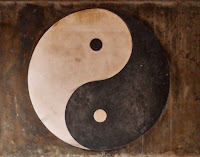 |
| heritage in chinese civilisation |
3.2 Chinese diet and health
a. Chinese saying: illness finds its way in through the mouth
a. Chinese saying: illness finds its way in through the mouth
b. Three practices to follow:
i. appropriate amount of food
– no overstuffing: ‘medicines are more or less harmful but overeating is most harmful’
– Sun Sumiao, Tang Dynasty’s King of Medicine: practise self-cautiousness
– practise principle of retaining 30% hunger and cold
ii. appropriate taste
– five evils of tastes are sweet, salty, sour, bitter, hot
iii. appropriate nutrition
– balance nutrition, e.g. protein, oil, etc
iv. appropriate temperature and hardness
i. appropriate amount of food
– no overstuffing: ‘medicines are more or less harmful but overeating is most harmful’
– Sun Sumiao, Tang Dynasty’s King of Medicine: practise self-cautiousness
– practise principle of retaining 30% hunger and cold
ii. appropriate taste
– five evils of tastes are sweet, salty, sour, bitter, hot
iii. appropriate nutrition
– balance nutrition, e.g. protein, oil, etc
iv. appropriate temperature and hardness
c. Confucius said
– eat seasonal food
– operation and change in man should correspond to seasons in nature, as heaven-earth-man are linked
– eat seasonal food
– operation and change in man should correspond to seasons in nature, as heaven-earth-man are linked
d. Food influences spleen and stomach (spleen and stomach are foundations of acquired constitution as kidney is foundation of congenital life)
– don’t eat when angry or in bad mood because blood goes to the head and not to the spleen and stomach which needs blood for digestion
– eat soft, ripe and warm food to protect spleen and stomach
– regulate diet means nursing spleen and stomach as a lot of illnesses come from damage to spleen and stomach
– “do not warm cold food with spleen and stomach”
– “do not soften hard food with spleen and stomach”
– “do not cook raw food with spleen and stomach”
– don’t eat when angry or in bad mood because blood goes to the head and not to the spleen and stomach which needs blood for digestion
– eat soft, ripe and warm food to protect spleen and stomach
– regulate diet means nursing spleen and stomach as a lot of illnesses come from damage to spleen and stomach
– “do not warm cold food with spleen and stomach”
– “do not soften hard food with spleen and stomach”
– “do not cook raw food with spleen and stomach”
e. Huangdi Nei Jing advocates, in order of succession, five cereals (for Qi, vitality); five fruits; five domestic animals, five vegetables as supplement
f. Do not eat many things from other places
– “each place has its own way to support its inhabitants”
– “each place has its own way to support its inhabitants”
g. Chinese cooking always comprises combination, and not singly
h. The human body does not need much; a simple diet is best
* Heritage in brief, for contemplation
No comments:
Post a Comment